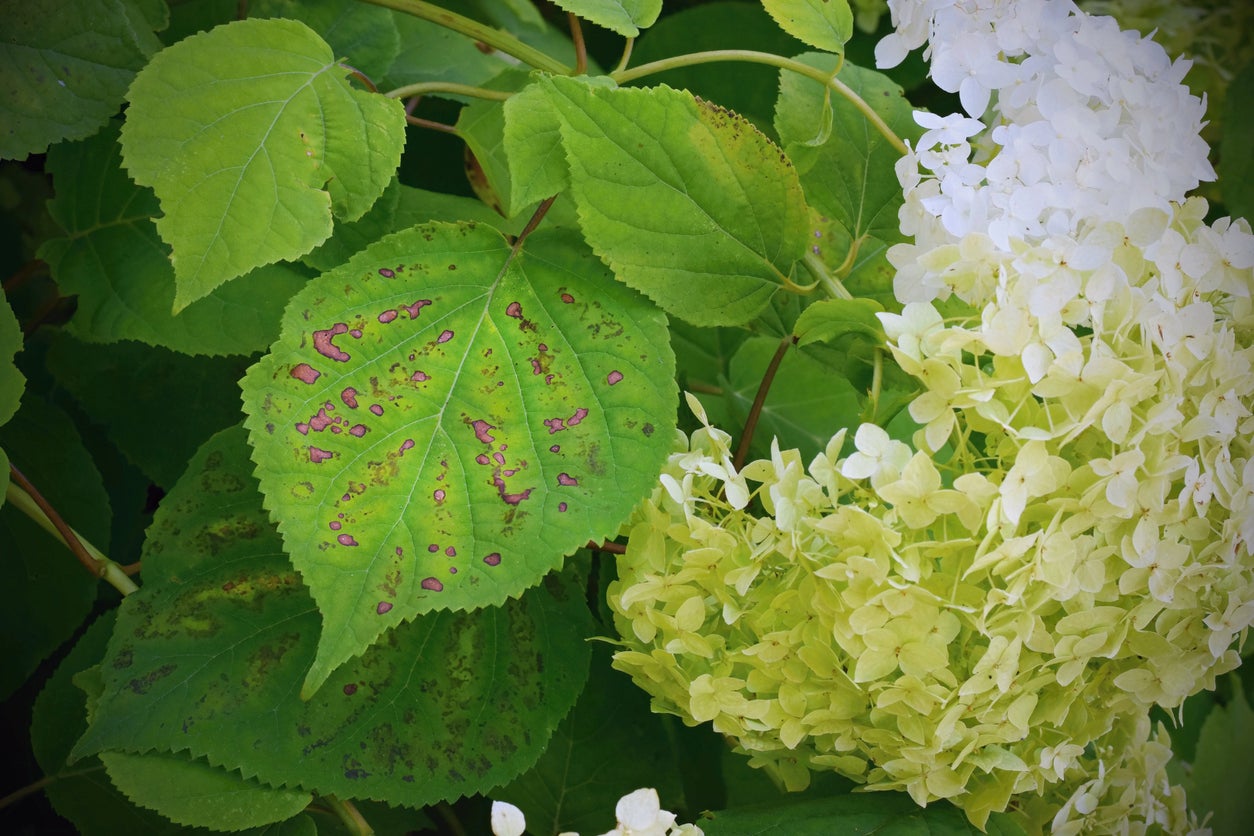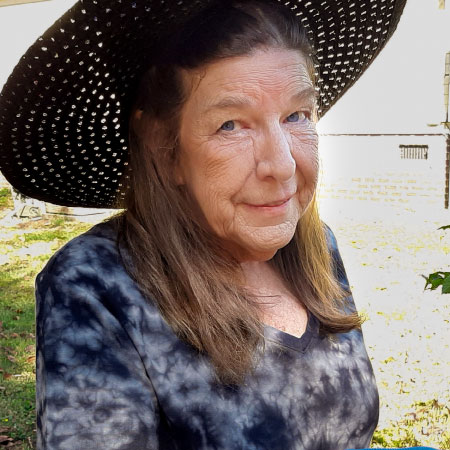Spots On Hydrangea Leaves – How To Treat Hydrangeas With Leaf Spots


Sign up for the Gardening Know How newsletter today and receive a free copy of our e-book "How to Grow Delicious Tomatoes".
You are now subscribed
Your newsletter sign-up was successful
Hydrangeas are a favorite flowering shrub of many, with big blooms and attractive foliage. However, spots on hydrangea leaves can ruin the beauty and infect other shrubs too. Learn how to treat the hydrangea leaf spot disease and make your plant beautiful again.
Leaf Spot Diseases on Hydrangeas
Leaf spotting on hydrangea is mostly caused by the fungus Cercospora and affects most of this family of plants. It is common from summer through fall. The fungus exists in the soil and is moved onto the plant by overhead watering or rain.
Plants are usually infected a month or two before spots appear on the leaves. Symptoms worsen during summers with heavy rainfall. Plants may flower less, with smaller blooms, and are less vigorous overall. Hydrangeas with leaf spots rarely die from the disease, but they can decline and defoliate early.
The spots first occur on lower, older leaves and then move upward. Circular shaped spots are small and purple, increasing to irregular patches with a grayish tan center bordered by purple or brown. At later stages, leaf spots begin yellowing. Remove damaged leaves at any point and dispose of them. They can hold the fungus over winter, so get them out of the area.
Bacterial leaf spots caused by Xanthomonas can also occur, particularly on oakleaf hydrangea plants. Moist conditions promote spread, with reddish purple spots that look more angular in appearance.
Treating Hydrangea Leaf Spot
Treating already damaged leaves that are going to fall off is not the solution to avoiding leaf spot next year. Practice good sanitation by disposing of all damaged leaves as they fall. In spring, avoid overhead watering, if possible. The water can splash the fungus from leaf to leaf and onto other plants nearby.
If the plants are valuable to you and you want to put in the work, you may attempt a prevention program in spring as new leaves emerge. Spray new leaves with fungicide every 10 to 14 days on bushes that showed damage last year. Spray new leaves as they appear on the plant and as they develop. Spray the stems and limbs and remember to get the leaf underside. Fungicide application on a regular basis may get rid of leaf spot if your issue was severe.
Sign up for the Gardening Know How newsletter today and receive a free copy of our e-book "How to Grow Delicious Tomatoes".
Applications of copper-based fungicides in late spring can be used to help limit the spread of bacterial infections but will not cure the plant.
If you’re just planting hydrangeas in your landscape, choose those that are disease resistant to help avoid this and other issues. Check with the nursery to make sure you’re buying a disease-resistant plant. Avoid overhead watering.

Becca Badgett was a regular contributor to Gardening Know How for ten years. Co-author of the book How to Grow an EMERGENCY Garden, Becca specializes in succulent and cactus gardening.